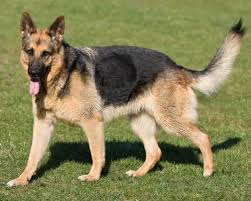Are pomegranate poisonous for dogs? Raw pomegranate isn’t toxic to dogs, but it can make them sick. “Eating more than a few of the seeds or any of the peel can cause digestive issues like vomiting, diarrhea, and abdominal pain,” says Dr. Chyrle Bonk, a veterinarian and consultant with PetKeen.com, a pet advice site.
How much pomegranate can my dog eat? First and foremost, pomegranates themselves are not toxic to dogs. In fact, pomegranates have plenty of health benefits to offer our pets in fruit, juice, and extract form. These beautiful fall fruits are rich in antioxidants and high in fiber, potassium, folic acid, and vitamin C.
Is pomegranate toxic? The root, stem, or peel of pomegranate is POSSIBLY UNSAFE when taken by mouth in large amounts. The root, stem, and peel contain poisons. When applied to the skin: Pomegranate extract is POSSIBLY SAFE when applied to the skin.
Which fruit is good for dogs?
The following fruits are safe for your canine pal to consume:
- Apples.
- Bananas.
- Blueberries.
- Cantaloupe.
- Cranberries.
- Cucumbers.
- Mango.
- Oranges.
Are pomegranate poisonous for dogs? – Additional Questions
Is POM juice good for dogs?
Yes — as we mentioned above, pomegranate juice is safe for dogs. In fact, it might be the safest way to give your dogs pomegranate, as it removes all the concerns of how the seeds and peel can affect their digestive tract. You can safely give your dog pomegranate juice in treats, kibble, or on its own.
Are pomegranate seeds safe to eat?
The seeds themselves appear to be perfectly edible. They are a good source of antioxidants, insoluble fiber, and punicic acid.
Can pomegranate skin be eaten?
Though the white, pithy part is safe to eat, it’s bitter and most people choose to discard it. The skin is technically edible as well but generally used in extract and powdered forms. Freeze the seeds.
What dogs shouldnt eat?
10 Foods Your Dog Should Never Eat
- Chocolate. Chocolate contains a very toxic substance called methylxanthines, which are stimulants that can stop a dog’s metabolic process.
- Avocados.
- Onions and Garlic.
- Grapes and Raisins.
- Milk and other Dairy Products.
- Macadamia Nuts.
- Sugary foods and drinks.
- Caffeine.
Can dogs eat cucumbers?
Are Cucumbers Safe for Dogs? Cucumbers are perfectly safe for dogs to eat, and offer a low-calorie, crunchy snack that many dogs love. Cucumbers only contain about 8 calories per one-half cup of slices, compared to the 40 calories in a single medium biscuit, and are very low in sodium and fat.
Can dogs eat ice cream?
Dogs Don’t Digest Milk Well
Eating ice cream may cause your dog a stomach ache or worse, depending on how sensitive they are. Ice cream can cause your dog gas, bloating, constipation, diarrhea or vomiting.
Can dogs eat popcorn?
Plain, air-popped popcorn is safe for dogs to eat in small quantities. Buttered popcorn or popcorn with other toppings is not safe for your dog on a regular basis, although eating a few dropped pieces here and there probably won’t hurt him.
Can dogs eat pizza?
The bottom line is that you should never give pizza to your dog, whether as a meal or a treat. They might experience a slight stomach upset if they’re sensitive to dairy, due to the excess fat, but overall in many cases dogs are fine.
Can dogs have potatoes?
White potatoes belong to the nightshade family of vegetables, which includes tomatoes; like tomatoes, raw potatoes contain solanine, a compound that is toxic to some dogs. However, cooking a potato reduces the levels of solanine. If you do feed your dog a potato, it should be baked or boiled, with nothing added to it.
Can dogs eat marshmallows?
The answer is no. Though not all marshmallows are toxic to dogs, they certainly aren’t good for your canine companion. Made from sugar, corn syrup, gelatin, vanilla extract, and coated with either cornstarch or confectioners’ sugar, marshmallows contain very little, if any, nutritional value or health benefits.
Can dogs eat pineapple?
The short answer is yes, dogs can eat pineapple. Pineapple is just one of the many “human foods” that dogs can eat. Raw pineapple is packed with nutrients that benefit both you and your canine companion. Frozen pieces of pineapple are also a delicious way to beat the heat.
Can dogs eat grapes?
The answer (and this goes for raisins, too, which are just dried grapes) is easy: No, dogs should never eat grapes. Grapes and raisins are known to be highly toxic to dogs, though research has yet to pinpoint exactly which substance in the fruit causes this reaction.
Can dogs eat carrots?
Yes, dogs can eat carrots. Carrots are an excellent low-calorie snack that is high in fiber and beta-carotene, which produces vitamin A. Plus, crunching on this orange veggie is great for your dog’s teeth (and fun) and it is included in many dog foods.
Can dogs broccoli?
Yes, dogs can eat broccoli. Dogs can eat the vegetable both cooked and raw, as long as there are no seasonings or oils added. However, this vegetable should always be given in very small quantities, especially because the florets contain isothiocyanates, which can cause gastric irritation in dogs.
What are the worst treats for dogs?
Here are the worst dog treat brand for 2019.
- Ol’ Roy® Basted Biscuits Dog Treats.
- Purina® ALPO Variety Snaps Dog Treats.
- Canine Carry Outs® Beef Flavor Dog Treats.
- Pup-Peroni® Dog Treats.
- Purina® Beggin’ Strips Dog Treats.
- Purina® Beneful Baked Delights Dog Treats.
- Pedigree® Marrowbone Dog Treats.
- Pup Corn® Dog Treats.
Can dogs eat sweet potato?
When feeding your dog a sweet potato, make sure it’s cooked and that the skin is removed; leaving the skin on makes it harder for your dog to digest. You should never feed your dog a raw sweet potato. Not only are they difficult to chew, but they can upset your dog’s stomach and potentially cause intestinal blockage.
Can dogs eat french fries?
French fries are high in salt, fat, and carbs, which can lead to canine weight gain. Restaurant or fast food fries can be hazardous to dogs because of their exceptionally high salt content. Additionally, restaurant-prepared fries often contain seasonings harmful to dogs, like garlic or onion powder.




